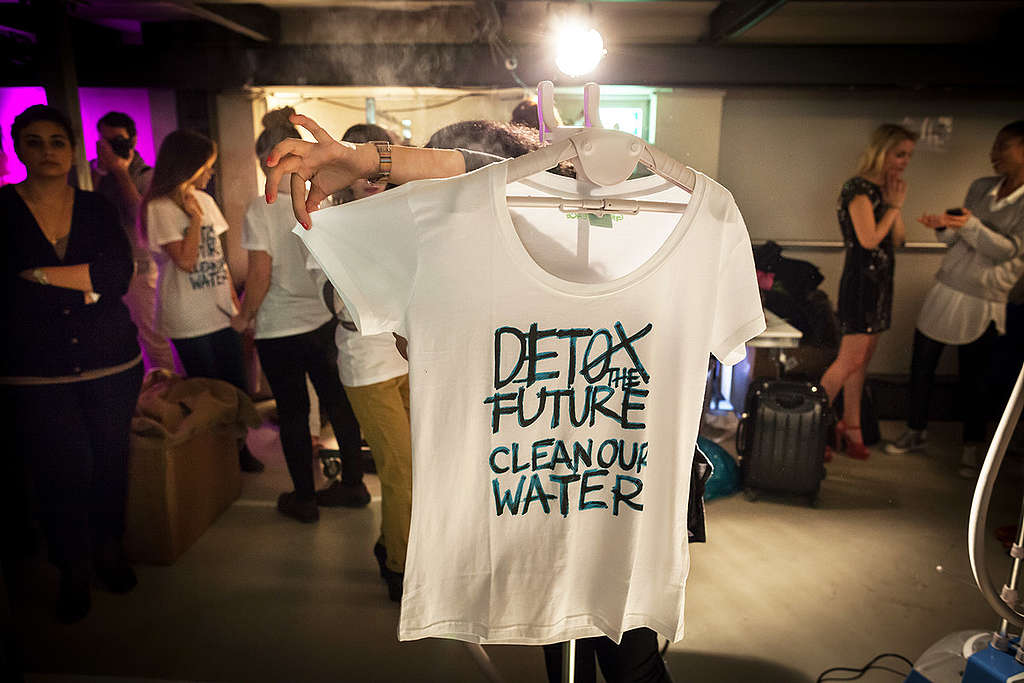At Greenpeace, we believe that rather than costing the earth, clothing should be both affordable and free from the use or release of hazardous chemicals.

We started the Detox My Fashion campaign in 2011 to challenge the textile industry and ourselves. A year later, Greenpeace International announced that we were suspending all sales of textile products, “until brands and suppliers can prove through transparent reporting that their clothes were not made using and releasing hazardous chemicals”.
At the time, the textile industry was a long way off.
But since then, 80 clothing companies have committed to Detox by eliminating the use of hazardous chemicals and their release to waterways by 2020. In our report, Destination Zero, we showed how significant progress has been made towards increased transparency and the elimination of hazardous chemicals in supply chains. This has triggered all kinds of new initiatives across the industry, and has influenced standards across the sector. In 2018 we started a pilot project to show that you can produce textiles in keeping with our ambitious Detox requirements.
These developments mean that from April 2019 Greenpeace will be trialling a new standard for start making t-shirts, bags and other merchandise. Our standard reflects the best overall practice in the market for detecting and eliminating the use and discharge of hazardous chemicals, resulting from the Detox campaign. It uses the best third party tools and standards that are now available for textiles manufacturing facilities to address hazardous chemicals and ensures full supply chain transparency.
While our 2012 suspension on the merchandising and gifting of textiles will remain broadly in place, Greenpeace offices are going to begin using selected suppliers, who meet the new trial standards for merchandising.
Please find here the full 2020 Greenpeace Global Textile Procurement Standard (updated August 2021).
For more information please contact [email protected]
